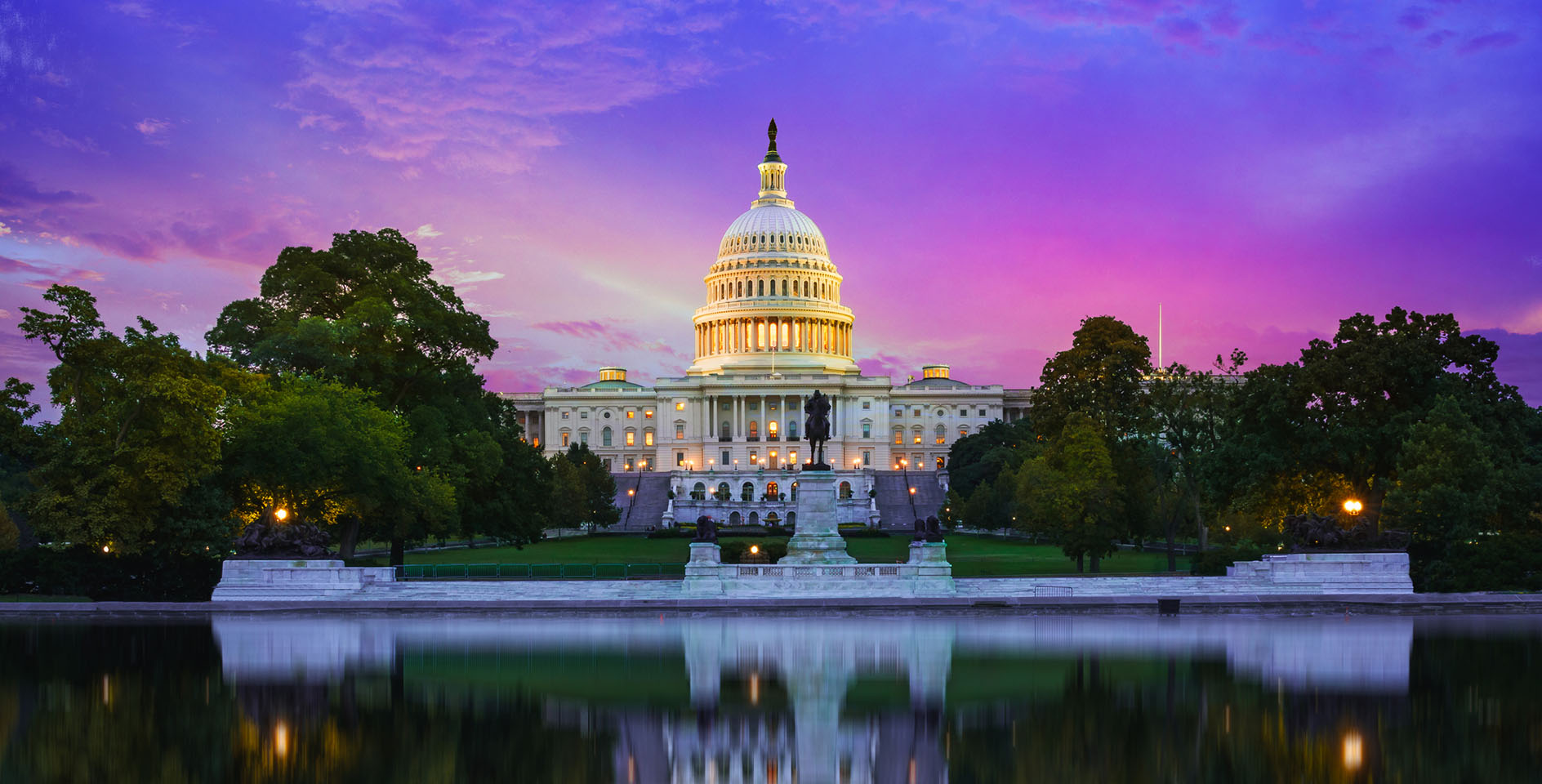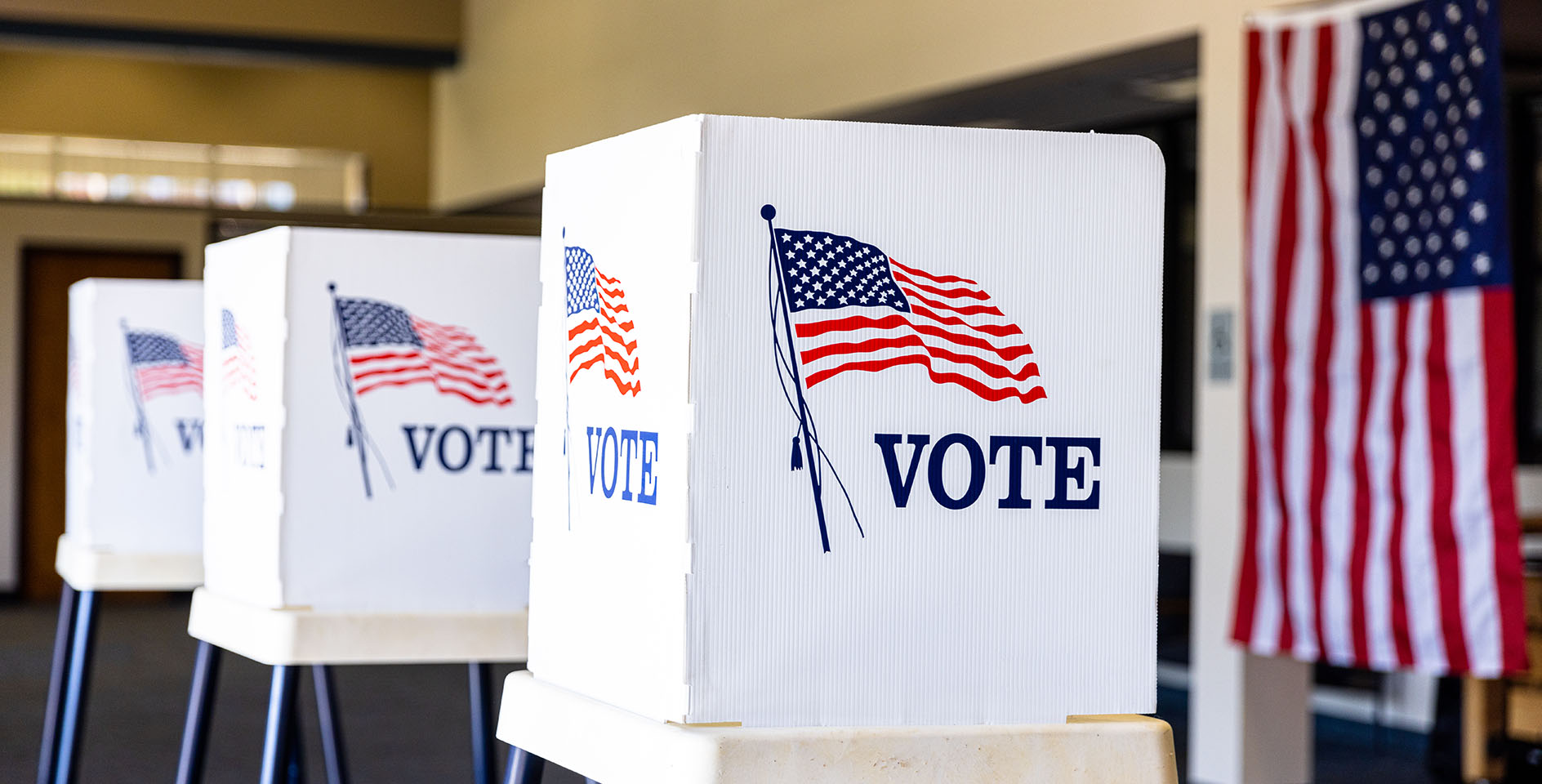As far back as 1800, just 24 years after the ink on the Declaration of Independence had dried, fear was already emerging as a prominent political instinct in America. As recounted by John Fea, “In 1800, a Federalist newspaper that supported President John Adams in his reelection campaign against Thomas Jefferson, suggested that, if the Electoral College chose Jefferson, the founding father and religious skeptic from Virginia, the country would have to deal with a wave of murder, atheism, rape, adultery, and robbery.”
Of course, Jefferson would go on to win the election, becoming the third president of the United States. And while these fears propagated by the Connecticut Courant proved to be unfounded, the strategy of stoking alarm among citizens for political purposes took root in American life.
Though our country’s current political milieu is not without precedent, American politics is increasingly becoming an exercise in fear-mongering. We are conditioned to fear the opposing parties and their candidates, to fear immigrants and refugees, to fear policies, government overreach, the loss of liberty, and more. For as long as anyone can remember, we’ve been warned of the imminent demise of our republic. And, to be fair, things are changing. Freedoms are being redefined, public virtue and morality have waned, and our divisions are more pronounced and volatile now than in recent memory. But fear, particularly in a political context, is an emotion that leads us into our respective partisan corners, away from any hint of or effort at unity. In other words, fear is a destructive, divisive political instinct.
Empathy as a new political instinct
Considering the current American political scene, surely we can all agree that our civic sensibilities are leading us in the wrong direction. And because the state of American politics is, at some level, the responsibility of each of us, it seems we need new political instincts.
In his 2018 book, How the Nations Rage, Jonathan Leeman references a conversation he had with Andrew Walker, associate professor of Christian Ethics and Apologetics at The Southern Baptist Theological Seminary. In this conversation, Walker provides an alternative to the politics of fear described above by John Fea when he says, “You must develop empathy as a political instinct.” Now, by even suggesting empathy as a viable political “strategy,” I can already hear the chorus of rebuttals in my head: “empathy is soft and sentimental,” “it’s regressive,” “it has no place in politics.” I would argue, however, that there may be nothing more vital to a healthy democracy, and to healthy political engagement, than the possession and practice of empathetic instincts.
Whereas a political instinct rooted in fear is concerned primarily (solely) with self-preservation, often at the expense of our neighbors, politics rooted in empathy concerns itself most fundamentally with “loving our neighbors as ourselves” (Mark 12:31). For the Christian, it’s one practical outworking of the second greatest commandment given to us by Jesus. Empathy is not regressive, and it’s certainly not soft; it is an instinct that undoubtedly compels us forward toward self-sacrifice. Empathy, at its purest, spurs us on to cross-shaped living. In this way, empathy and convictional kindness are not weak, but are actually the method for waging our war in the public square. We rely not on a Darwinian appeal to power or self-preservation, or the fear stoked by both, but rather rest in the assurance of a victorious King who has redefined victory, not by “owning” his enemies, but by sacrificing himself for them and praying that the Father would forgive them (Luke 22:34).
Cultivating empathy
Developing new instincts is hard work, especially in a political climate that has normalized verbal harangues, diatribes, and rhetorical volatility, all of which are habits rooted in fear. And, new instincts won’t take root, as counterintuitive as it may seem for the development of empathy, without, first, honest self-reflection. While empathy is an instinct that habituates selflessness, it can’t develop until we have humbled our own selves, because empathy depends on humility. Therefore, cultivating political empathy starts by acknowledging that we have, at some level, failed to uphold our end of “we the people,” regardless of any blatant malpractice that we may see “out there” among our partisan opponents. Empathy begins when we recognize our own malpractice, our own sin, and we repent.
But, of course, empathy’s initial inward bend ultimately gives way to the heart of empathy, which is its selfless concern for our neighbors. While a political instinct of fear double’s-down on the partisan aisles that divide us, in homes and neighborhoods and zip codes all across the country, empathy motivates us to cross those aisles, exchanging our wagging fingers and unkind words with handshakes and hugs and words of compassion. To that end, the cultivation of political empathy is not an abstract exercise, it is materially incarnational. It requires enrollment and participation in the academy where empathetic instincts are trained, namely the neighbor relationship. If we want our political instincts to be marked by empathy rather than fear, it may be as simple, at first, as sharing a meal with our neighbors. Don’t underestimate what God may do around a table, in the simple act of breaking bread together.
In a political environment driven so much by the online community, a community where our humanity is all but hidden behind the veil of a screen, fear and rage are increasingly the most prominent instincts represented (and rewarded). In other words, we cannot expect to grow more empathetic by planting ourselves in the weeds of social media and other online communities. Empathy grows only in the context of actual, personal relationships.
Empathy, a work of God
For Christians, we, of all people, are those who have been called to enter the chambers of empathetic dialogue and action. We, of all people, are those who’ve been given a leg-up on the development of new instincts, by the power of the Holy Spirit. And we, of all people, are those who’ve been given a standard of empathy in the person of Jesus, the one whose divine instincts compelled him to sit around tables with sinners and enemies with gentleness and meekness. It is the work of God—Father, Son, and Holy Spirit—through our relationship with Him that births new instincts in us and fans them into flame, and then compels us to foster relationships with people, flesh and blood people, the training grounds where these instincts are exercised and sanctified. Empathy, from start to finish, is a work of God.
As Christians, it is our unique responsibility to let our conception of reality, our Christian worldview, drive all our political assumptions and engagement. What this means, at the very least, is that we should, by the Spirit, wring out any fear still clinging to our political instincts. And then, by that same Spirit, we should make room at our tables, both literal and metaphoric, for men and women of every political and theological persuasion, sinners and enemies, for the glory of God, for the good of his people (those now and yet to be adopted), and, yes, for the preservation of a healthy society.










